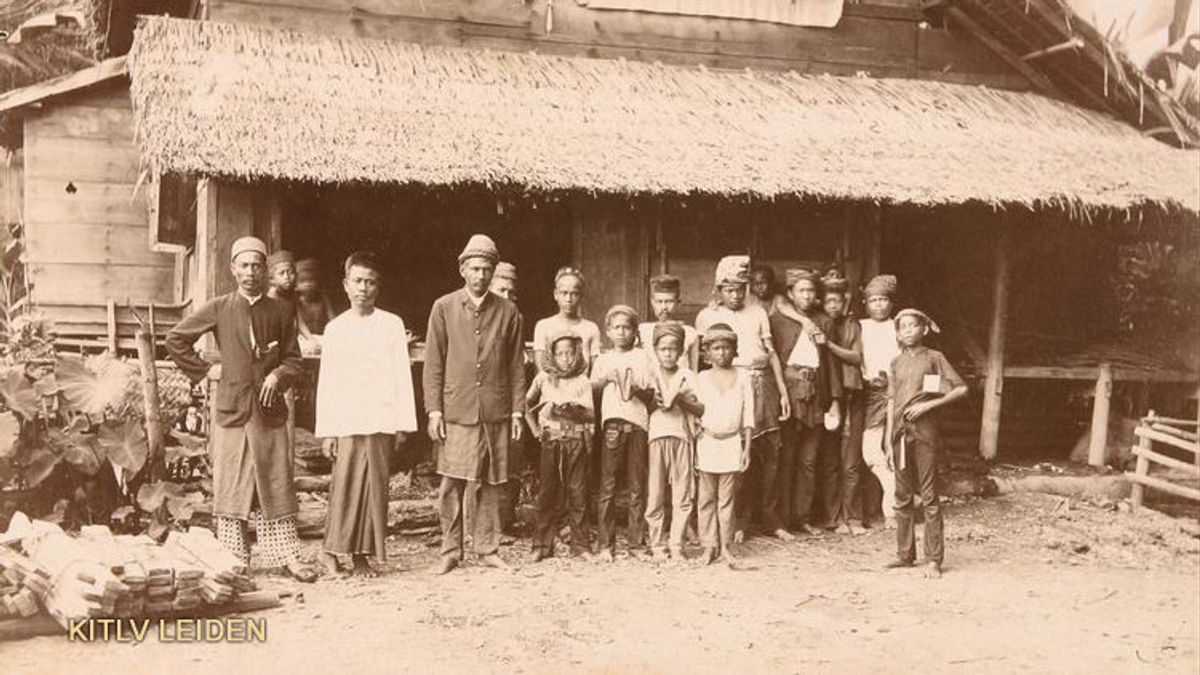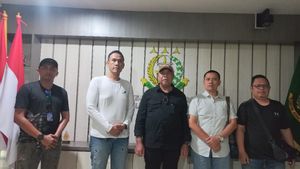JAKARTA - The role of teachers is central to the growth and development of every nation. Even in the history of Indonesian independence. In the hands of the teacher, a child can grow up to be an intelligent and independent person. Unfortunately, behind such a big role, the teacher's life is far from prosperous. We still hear their sad story. In fact, the poverty of teachers were teachers in the Dutch colonial era.
In the early 20th century, the Dutch East Indies had about 15-17 million school-age children. However, only 1.2 million people have an education, which means only ten percent. And even then they had to compete with the Dutch and Indo-Dutch. In that condition, being a teacher is one of the most needed professions.
The teaching profession then became prestige. The teacher profession is also a gateway to prosperity. The profession of the teacher is up for grabs. The teachers are always competing to be the best example for their students. They don't just teach, but educate. Teachers are known to be very disciplined. Teachers always come to school early and come home late.

The strict and mature education of these Dutch teachers was the key to the emergence of intelligent beings. On the downside, not all teachers live in a prosperous circle. Teachers who come from the native people, especially. They are poor. Especially about salary.
"Then the indigenous teachers began to feel the imbalance in the matter of salaries between inlanders (bumiputra) and European teachers. Indigenous salaries are lower even though the diploma is the same. Because of that in 1910 native teachers founded a teacher organization called PGHB (the Dutch Indies Teachers Association). This organization is supported by a Dutchman, Van Deventer, a member of parliament, "wrote Bungaran Antonius Simanjuntak in the book Social Structure and Political System of Batak Toba until 1945 (2006).
The total salaries of European teachers and native teachers are completely unequal. A teacher of European nationality can receive a salary of over 100 guilders per month. Meanwhile, the salaries received by Bumiputra teachers tend to be erratic.
In 1878, a native teacher who graduated from Kweekschool received a salary of over 75 guilders. While they are secondary school assisting teachers who earn around 20-30 guilders. That amount, if adjusted for the cost of living necessities, is far from sufficient.
A small salary for a bumiputra teacher
The low salary of teachers during the Dutch colonialism was also mentioned by President Soekarno. Big Brother recounts the salary of his father, Soekemi Sosrodihardjo, as a teacher, which is only enough for daily needs. Bung Karno and his family lived in poverty.
Bung Karno had no shoes. Even Bung Karno did not know cutlery. Bung Karno related his childhood which was not much different from that of magician David Copperfield, who also lived under the poverty line as a child.
“Such an outrageous absence can cause the inner heart to become sad. With my older sister Sukarmini, who is two years older than me, we are a family of four. Dad's salary is $ 25 a month. Less our rent on Jalan Pahlawan 88, the balance becomes $ 15. And with a comparison of the government exchange rate of 3.60 for one dollar, one can estimate how low the level of living for our family is. When I was six years old we moved to Mojokerto, ”said Bung Karno, quoted by Cindy Adams in Bung Karno's book: Connect the Indonesian People's Tongue (1965).
The novelist Achdiat K. Mihardja has also experienced the small salary for being a teacher. The man who graduated from AMS: Algemeene Middelbare School (1929-1932) immediately chose to become a Taman Siswa teacher in Kemayoran, Batavia (Jakarta). His job as a teacher did not really satisfy Achdiat.
Instead of being a well-paid teacher, the job falls into the dangerous category. As a teacher at Taman Siswa, a bumiputra school, Dutch intelligence monitored his actions. Meanwhile, as a writer, with a little misprint, Achdiat could be thrown into custody.
As a result, Achdiat chose to move to Bandung and opened a shop. His business is progressing quite a bit. While doing business he remains a freelance writer. Because of his writings, Balai Pustaka then noticed Achdiat's abilities. Long story short, Achdiat became part of Balai Pustaka. Achdiat received a fairly large salary compared to when he was a teacher at a bumiputra school.
"Yes, Achdiat was proposed by Balai Pustaka, in the years leading up to the Japanese occupation. How much is the salary offer? 40 guilders a month. Three months of work was just appointed deputy chief editor with a salary of 70 guilders a month. Big? Not much compared to the results of his trade which could make 150 guilders profit per month. But not bad compared to the Taman Siswa teacher's salary of only 20 guilders, "Hasan Aspahani wrote in Chairil's book: A Biography (2016).
The condition of the native teachers during the Japanese colonial period (1942-1945) was no better. The reason was the Japanese rule in the archipelago which was short. Moreover, at that time Japan was in full swing to build a war fleet. So, there is no time to pay special attention to the field of education, especially the fate of native teachers. Japan's footprint on education is limited to adding Japanese to schools.
"Apart from that, the schools are left to their respective regions and continue to run as during the Dutch administration. The only difference was that at that time the people had withdrawn. So most of the schools were no longer held in cities or in villages, and were no longer as disciplined as the Dutch era, but were held where teachers also left. And as teachers' salaries, children do not pay in the form of money, but in the form of agricultural products, such as sweet potatoes, bananas and others, "wrote in the book History of the Region of North Sulawesi (1977).
MEMORY OtherThe English, Chinese, Japanese, Arabic, and French versions are automatically generated by the AI. So there may still be inaccuracies in translating, please always see Indonesian as our main language. (system supported by DigitalSiber.id)









